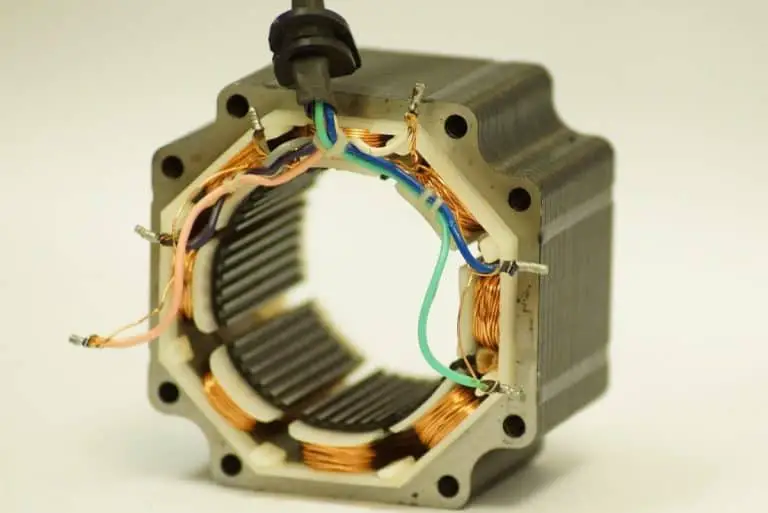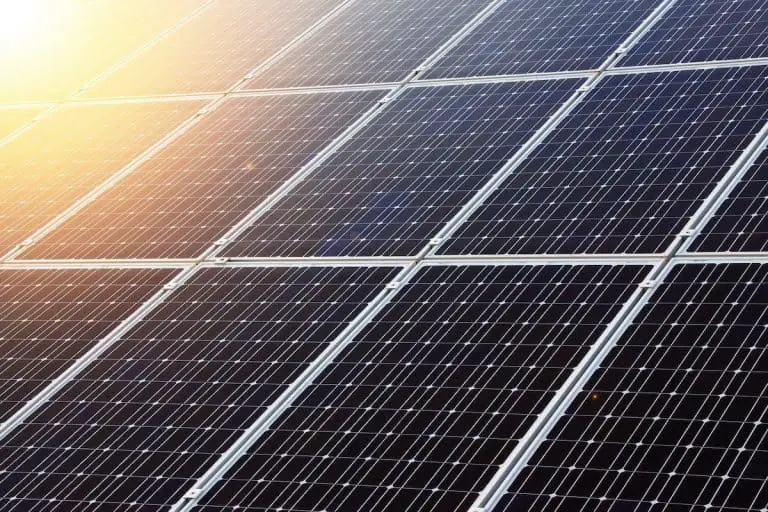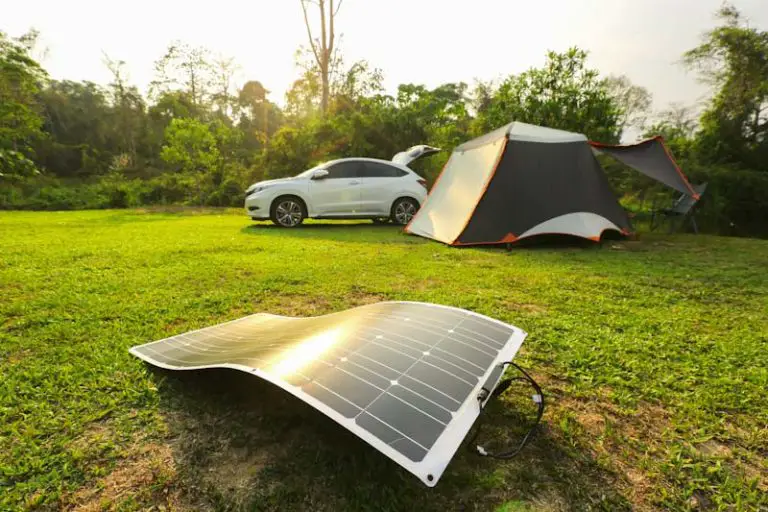Can You Run a 12-Volt Fridge from a Solar Panel?
If you love the outdoors but crave the convenience of home, using solar panels to power appliances while camping is ideal. Solar panels are easy to use and offer more flexibility and freedom to camp wherever you want without sacrificing the use of such appliances, but can you run a 12-volt fridge from a solar panel?
You can run a 12-volt fridge from a solar panel. Apart from the fridge wattage, the duration depends on the panel’s size, wattage, and your total power usage. Plus, a deep-cycle battery increases the run time of your fridge considerably. Using solar power while camping is a convenient, cost-effective, quiet, green energy source that will save you money.
This article starts with a quick guide to solar energy, explaining the concepts of solar energy and solar panels, giving you insight into what factors influence how long a 12-volt fridge will run from a solar panel.
The Ideal Solar Solution for the Outdoors
Having access to any power source while camping can certainly make your outdoor experience a lot more comfortable. But what does solar power really entail, and how does the ideal solar camping solution look?
Solar power converts sunlight into electricity through photovoltaic (PV) cells, also known as solar cells. Sunlight is composed of solar energy particles, also referred to as photons. Incoming sunlight gets absorbed by a solar cell’s semiconductor material with usable electricity as a result (source).
Any outdoor solar solution consists of two elements. Firstly, you’ll require a solar panel to generate electricity by capturing sunlight.
These solar panels can be in the form of easily mounted panels on top of your RV, caravan, or motorhome, or you might prefer a foldable portable solar panel that you can move around and place directly in sunlight (source).
Secondly, you’ll want to use a good-quality deep-cycle battery to store solar energy and build up a reserve for those days with limited sunshine or none at all. You’ll be able to charge a variety of appliances, like the ever-popular 12-volt fridge, and regulate the power flow at the same time.
If you wish to learn more about how much power solar panels produce, read my helpful article on that topic.
Running a 12-Volt Fridge from a Solar Panel
You can run a 12-volt fridge from a solar panel, and how long depends on the size of the solar panel, its wattage, the watts of the fridge, your day-to-day power consumption, and whether you make use of a deep-cycle battery or not.
Size of the Solar Panel
The voltage output from a single PV cell is around 0.46 volts of electricity at normal operating temperatures. Solar power panels consist of different configurations and contain anywhere from 32 to 144 cells. For example, a 32-cell panel produces a voltage of 14.72 — 0.46 x 32 = 14.72.
Some of the more popular sizes include 60-cell and 72-cell solar panels. A 72-cell solar panel contains 6 columns of 12 cells each and is 39 inches wide with an average length of 78 inches. Most home solar panels measure about 65 inches high by 39 inches wide (source).
The size of a solar panel is commonly reflected in its wattage, and the most popular panel sizes are between 250–400 watts. Let’s dive a little deeper into what wattage entails and how it is calculated.
Solar Panel Wattage
Wattage is calculated by multiplying volts by amps. You’ll need to work with this equation in mind to determine what solar panel wattage is needed to run a 12-volt fridge, but let’s do a quick review of the basic units of measurement for electrical power first — namely, voltage, amperage, and wattage.
Voltage measures the electric potential difference in volts, while an ampere or amp is the electric current unit. The current is the total amount of electrons that flow through a circuit and subsequently generate heat, which, in turn, disperses power. This power output is wattage, shortened to watt, and measures the energy movement scale (source).
In this example, I’ve presumed that 12 volts and 400 watts are applicable for the solar panel:
Amps x 12 volts = 400 watts
400 watts/12 volts = 33.33 amps
The result indicates that a 400-watt panel will produce 33.33 amps of energy, which gives a clear indication of how much electric current can be generated.
How Many Watts Does a Fridge Use?
While we know that the fridge runs on a 12-volt power source, the actual wattage can vary a lot depending on the fridge’s size and make. Modern energy-efficient fridges use power moderately at 100 to 200 watts, whereas older ones can use up to 800 or even 1200 watts.
Let’s take a look at another example. In this 12-volt fridge scenario, we presume the wattage to be 100.
Equation: amp x volts = watts
Amps x 12 volts = 100 watts
100 watts/12 volts = 8.33 amps
The result indicates that a 12-volt fridge with 100 watts uses 8.33 amps.
Power Usage
The area you live in, the type of house, and how often you use and charge electrical devices all influence your power consumption. According to the US Energy Information Administration, on average, an American household uses 11,000 kilowatt-hours (kWh) per year.
Power usage during camping trips is generally lower than normal household power consumption. However, it’s important to be aware of all the appliances you take with you and their respective power usage.
The Advantages of Deep-Cycle Batteries
Using a deep-cycle battery will extend the run time of your 12-volt fridge considerably from a solar panel. Deep-cycle batteries are commonly used combined with solar panels because of their long life-span and ability to build a reserve efficiently.
While most deep-cycle batteries are 12-volt, there are quite a few different types on the market. The most common picks are a flooded or an absorbent glass mat (AGM) deep-cycle battery. The depth-of-discharge of an AGM battery is 80%, outlasting the 50% for flooded batteries (source).
The capacity of any battery is measured in kWh and is also referred to as the energy rating. It measures the amount of power that can be stored. A deep-cycle battery’s energy rating can vary a lot from as much as 200 amp-hour to as little as 10 amp-hour ratings (source).
You need an inverter to change the direct power (DC) stored in the battery, usually at 12-volt, into alternating current (AC), at 230 volts, in order to operate appliances. The bigger the inverter size, the longer you can run a 12-volt fridge.
To determine if your solar panel can run a 12-volt fridge, let’s merge the two examples from earlier into one specific scenario.
| Solar Panel | 400 Watts | 12 Volts | 33.33 Amps |
| Fridge | 100 Watts | 12 Volts | 8.33 Amps |
The result indicates that a 400-watt solar panel will produce 33.33 amps of energy, enough electric current to run a 12-volt fridge at 8.33 amps. Using a deep-cycle battery will extend the duration and offer you the flexibility to store energy and benefit from it during cloudy and/or days.
If you want to know about how long you can run other appliances, read our helpful article on “How Long Will a Deep Cycle Battery Run a TV.”
5 Benefits of Using a Solar-Powered 12-Volt Fridge
If you have enough roof space on your RV, motorhome, or caravan, choosing a permanent solar panel solution could be ideal for your family. Alternatively, you might prefer a portable, lightweight solar panel that can easily be packed up. Whatever your preference, here are five benefits of using a solar-powered 12-volt fridge.
Environment friendly
First of all, running a 12-volt fridge on solar power is an environmentally friendly solution to portable electricity and, therefore, incredibly beneficial in the outdoors. This off-grid renewable, sustainable, clean, and natural energy source releases no harmful gasses, nor do solar panels require water to generate electricity.
Quiet and Cost-Effective
A solar-powered 12-volt fridge won’t disturb your peace and tranquility as generators do. You will be able to charge and use your regular appliances but without any noise and with far less impact on your wallet.
Flexibility
Using a 12-volt fridge on solar power enhances your flexibility to camp wherever you want. They’re perfect for road use, and you no longer have to rely on a powered site to use and recharge your appliances.
Tailgating and boating are two additional activities where 12V coolers and solar panels can be handy. Have an all-day tailgate before that 7 pm game? Grab a good fridge and a few solar panels to keep those drinks and your guests cool all day.
Avoid Fees from Powered Sites
Running a 12-volt fridge on a solar grid system will save you money both in the long and short-term. You no longer have to pay for powered sites while camping, and maintenance costs are either non-existent or low in comparison to generators.
Convenient
Solar panels are incredibly convenient and easy to set up. There are lots of options on the market, ranging from solar solutions attached to your RV, motorhome, or mobile, and lightweight solar panels to minimize packing space.
Final Thoughts
Solar panels have changed the camping game in recent years. You can now rely on the conveniences of home while camping with an additional degree of flexibility and convenience. Plus, you will be contributing to a better environment for all and save money on top of that.
Powering a 12-volt fridge through a solar panel is possible, but it’s important to factor in the panel size, its watt usage, the wattage of the fridge, and your overall power consumption. In addition, a deep-cycle battery is a smart investment to extend the run time of your fridge on a solar panel. Plus, it will provide a reserve for cloudy and rainy days.







